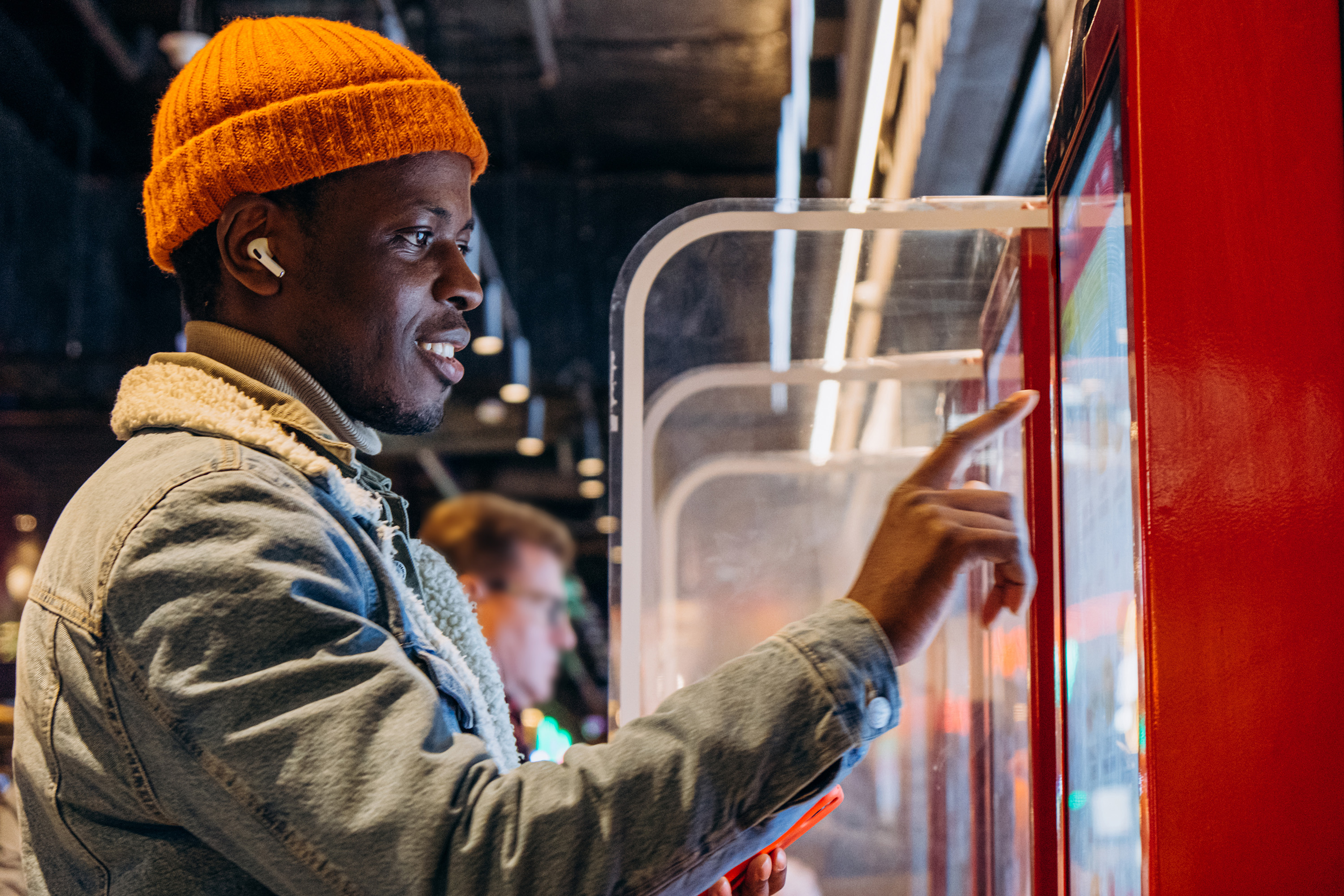The Gen Z Paradox
1. Gen Z isn’t anti-social, just pro-comfort
Gen Z is driving a new wave in hospitality where minimizing social friction is a priority. QR menus, digital screens, and self-ordering kiosks are not just tech gimmicks, they are comfort mechanisms. Terms like “menu anxiety” have entered the mainstream, with over 86% of young Brits reporting stress while ordering in restaurants.
Restaurants that offer frictionless, tech-driven experiences, like mobile ordering or pay-at-the-table, are more likely to win the loyalty of Gen Z. For them, control over the experience equals comfort.

2. Gen Zero: The rise of sober-curious culture
Alcohol is losing its cultural grip among Gen Z.
In France, the number of 17-year-olds who have never consumed alcohol rose from under 5% to nearly 20% over two decades. In the UK, 1 in 5 Gen Zers abstains completely.
This generation still seeks the ritual of sharing a drink, just not the alcohol. Mocktails, fermented sodas, and botanical drinks are no longer extras, they’re essentials. Beverage menus must reflect this sober shift or risk losing relevance.
(image source: The Mocktail Club)

3. “What’s on my plate?”, but more importantly, “Where did it came from?”
Gen Z buys with purpose. Organic, traceable, local, and low-impact are not just nice-to-haves, they’re must-haves. Over 90% of Gen Z consumers in Europe have purchased organic goods, and they are willing to pay more for brands that align with their values.
Venues that show commitment to sustainability, from food sourcing to packaging, gain trust. The days of greenwashing are over. Integrity is the new luxury.
(image source: Jake Stangel)

4. If it’s not worthy of their feed,
it’s not on their list
For Gen Z, discovery starts online. Over 70% find new places through social media. TikTok, Instagram, and Google Maps are their search engines. They’re guided more by aesthetic and authenticity than by star ratings.
This means every element of your space, interiors, plating, uniforms, is part of your digital identity. If it’s not visually engaging, it won’t be bookmarked. Hospitality brands must be designed with both the lens and the guest in mind.
(image source: Instagram, unknown user)

5. If it’s just for show, they’ll know
Gen Z doesn’t just buy the product, they buy the purpose. 3 out of 4 say they care more about sustainability than brand name. Over 60% say they’ve become more values-driven in recent years.
They look for inclusivity, climate awareness, labor ethics, and real representation. Hospitality brands that show real commitment to ESG will be rewarded. Performative values, however, will be spotted instantly, and rejected.
(image source: Louis Vuitton)

6. The €8 iced drink: More than just a little treat
Why does a generation pay €8 for a layered drink? Because it’s more than a beverage, it’s a symbol. A moment of joy. A little treat during an ordinary day.
Gen Z is not saving for someday, they’re investing in now. In aesthetic rituals and emotionally satisfying experiences. Brands are responding with micro-luxury formats: €18 natural wines, ultra-designed plates, colour-blocked drinks. That’s not excess, it’s emotional currency.
(image source: The Digital Diary)

7. Off-screen moments: The return to real
Despite their screen time, Gen Z is turning away from digital overload. AI, algorithms, and endless feeds exhaust them. What they crave now is realness: eye contact, messy beauty and physical spaces that feel like home.
They want to be seen, not scanned. Heard, not tracked. Whether it’s a handwritten note, a warm smile, or a well-designed analog touch, Gen Z values moments that feel human and personal, not hyper-automated.
(image source: Restaurant Radis)




